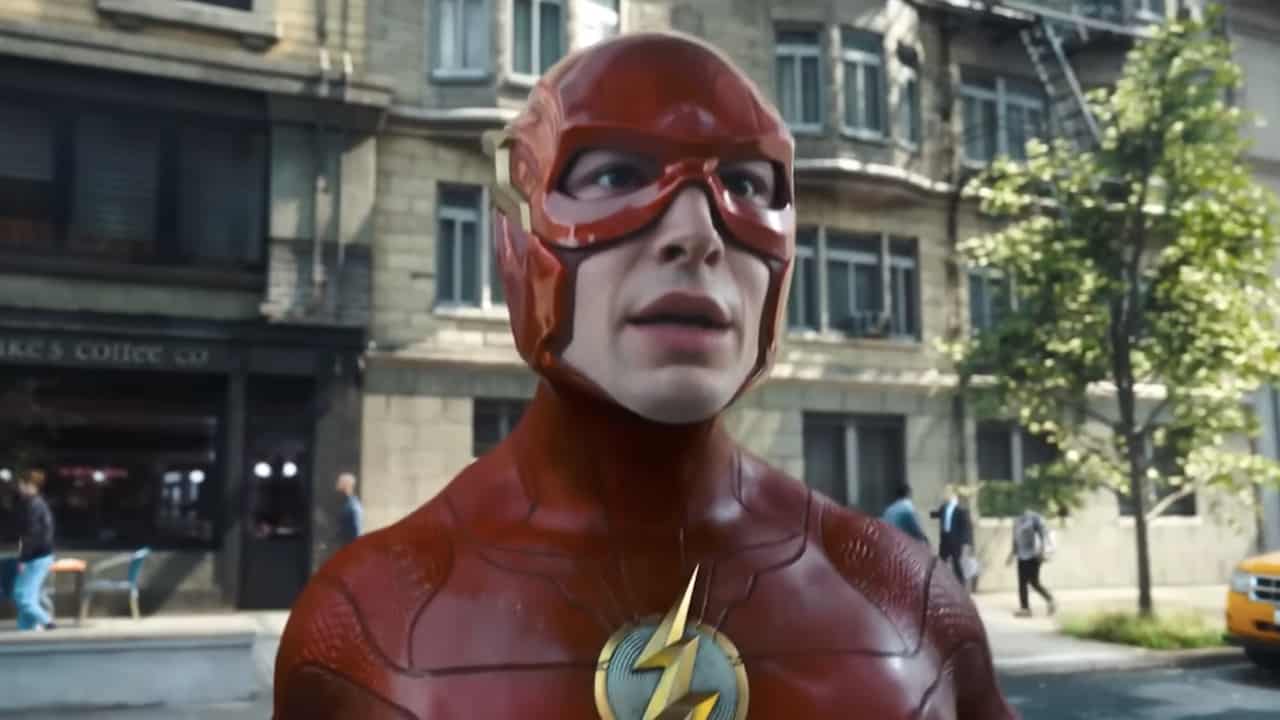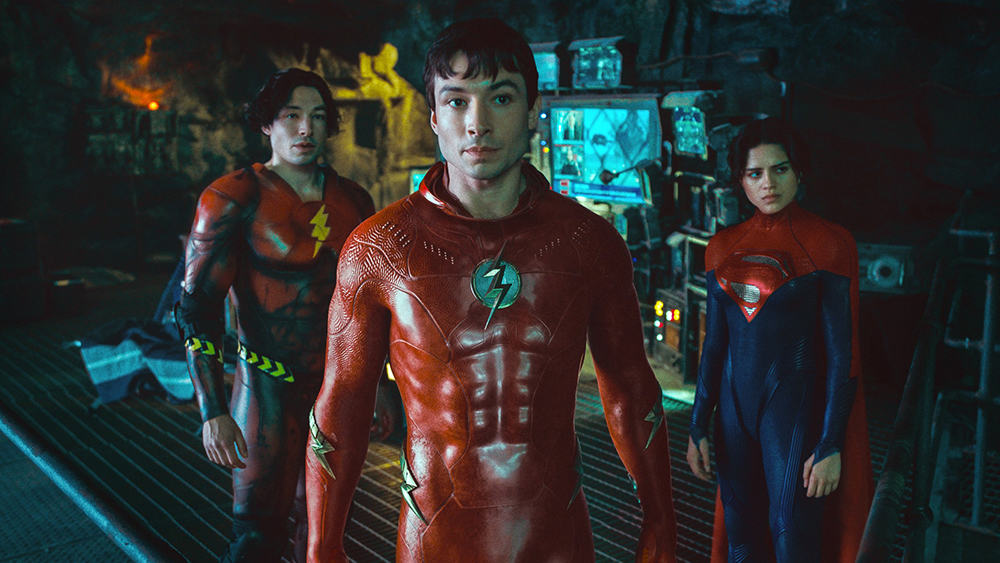The performance of the thirteenth installment in the DC Extended Universe (DCEU), The Flash, at the box office has been underwhelming, and there are several factors contributing to this outcome beyond the film itself. While the movie has received mixed reviews, its dismal box office can be attributed primarily to a disastrous marketing campaign, which faced significant hurdles due to the legal troubles and scandals surrounding lead actor Ezra Miller.
Launching a successful film, especially a superhero blockbuster like The Flash, becomes challenging when the film’s main star is unavailable to promote it. In the case of The Flash, Miller’s absence from the media spotlight was compounded by co-star Michael Keaton’s virtual disappearance, skipping the Los Angeles Premiere and being occupied with the filming of Beetlejuice2, leaving no room for media tours for The Flash.
The marketing campaign for The Flash heavily focused on Keaton’s return as Batman and Bruce Wayne, overshadowing the Flash character and Miller’s involvement. This imbalance diminished the impact of the Flash’s presence in the film.
The release of The Flash was accompanied by an announcement, not of a potential Flash sequel, but rather of director Andy Muschietti’s involvement in a new Batman film titled Batman: The Brave and the Bold. This decision seemingly buried The Flash, suggesting that Warner Bros. Pictures, the film’s distributor, had already shifted their focus away from the film before its release.

Also read: The Flash 2023 Ending Explained: The Multiverse Theory & What It Means For DCEU.
The Flash’s Box Office Struggles Continue
Anticipating the theatrical release of The Flash, DC and Warner Bros. Pictures has initially projected the film to earn between $70 million and $75 million during its first three days at the domestic box office. Additionally, they expected it to reach around $80 million to $85 million over the four-day Juneteenth holiday weekend.
However, it quickly became evident that The Flash would struggle to meet even these relatively modest projections. The projections were based on the film being considered a part of a “deeper universe” in the DC franchise and the absence of a major promotional partner campaign, primarily due to Ezra Miller’s unavailability for media engagements.
Unfortunately, The Flash fell significantly short of expectations, grossing approximately $55 million in its first three days of release at the domestic box office. Over the four-day holiday period, it managed to accumulate just over $61 million, which was well below the initial projections set for the film.
Contrasting the performance of recent DCEU releases, The Flash’s box office numbers were examined in comparison to Black Adam (2022). Black Adam achieved a domestic opening weekend gross of $67 million, while Shazam! Fury of the Gods had a lower opening weekend gross of $30.1 million.
Although The Flash surpassed Shazam! Fury of the Gods, in terms of its domestic opening weekend, it should be noted that The Flash had a much higher reported production cost ranging from $200 million to $220 million, whereas Shazam! Fury of the Gods had a reported production cost of just $100 million.

Also read: The Flash End Credits: What Happens In The End?
The Fash experienced a significant decline in its second weekend at the domestic box office, plummeting over seventy percent to $15.1 million. In the first ten days of its release, The Flash earned approximately $87.5 million domestically, placing it behind Black Adam (&10.9 million) and the widely criticized Green Lantern ($88.9 million).
Furthermore, Black Adam and Green Lantern ultimately grossed $168.1 million and $116.6 million at the domestic box office, respectively. In contrast, The Flash, which had reported a marketing cost of $150 million, has currently amassed approximately $89 million domestically.
A Massive Box Office Failure with Potential Financial Losses
The Flash has emerged as a significant box office failure, facing the possibility of losing hundreds of millions of dollars during its theatrical run. The film’s commercial performance has rapidly declined, both in North America and overseas, less than three weeks after its release.
In terms of financial impact, The Flash is projected to become the most financially detrimental film within the DCEU franchise, excluding those affected by the COVID-19 pandemic, such as The Suicide Squad and Wonder Woman 1984.
Considering a production cost of $200 million and a conservative estimate of $100 million for marketing expenses, The Flash would need to earn around $600 million at the global box office, excluding non-theatrical revenue, just to reak near reaching this threshold. Consequently, it is accurate to describe The Flash as a complete commercial and financial disaster for DC and Warner Bros. Pictures.
Also read: Actor Ezra Miller Opens up on Misconduct Allegations in Candid Statement at ‘The Flash’ Premiere.





